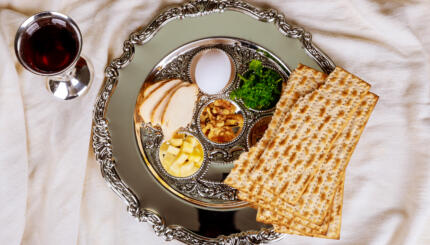Is it OK to drink soda on Passover? Well, it depends.
Soda is basically water and sugar with additional (usually artificial) flavorings added. There’s no grain and there’s no fermentation, so soda would not qualify as hametz and therefore should present no problem for Passover consumption.
There are two concerns however. One is the general issue of processed foods, which are produced in factories with equipment that may be used for hametz products. As a result, many traditionally observant Jews will only consume processed food on Passover that is explicitly labeled kosher for Passover.
The other issue is the sweetener. In the United States, soda is often sweetened not with cane sugar but with corn syrup. Corn is not one of the five prohibited Passover grains, but it does fall into the category of kitniyot, which is historically forbidden to Ashkenazi Jews. (The Conservative movement reversed this ban in 2015.)
With your help, My Jewish Learning can provide endless opportunities for learning, connection and discovery.
Some sodas do use cane sugar as a sweetener, which would eliminate the second problem (but not necessarily the first). And some manufacturers will temporarily change their recipes during the Passover season to make their products kosher for Passover.
The best-known example is Coca-Cola, which produces a version made with sucrose instead of corn syrup in certain markets in the weeks leading up to Passover. The two-liter bottles are identified by distinctive yellow caps which bear a kosher for Passover symbol from the Orthodox Union, the world’s largest kosher supervising agency.
Click here for more information on keeping kosher for Passover.
hametz
Pronounced: khah-METZ or KHUH-metz, Origin: Hebrew, bread or any food that has been leavened or contains a leavening agent. Hametz is prohibited on Passover.
kitniyot
Pronounced: kit-nee-YOTE, Origin: Hebrew, meaning "little things," the term here refers to legumes, corn, rice and other non-hametz foods prohibited for use on Passover by some Ashkenazic rabbis in the medieval period. Many Sephardic Jews (and Conservative Jews) do allow them on Passover.



